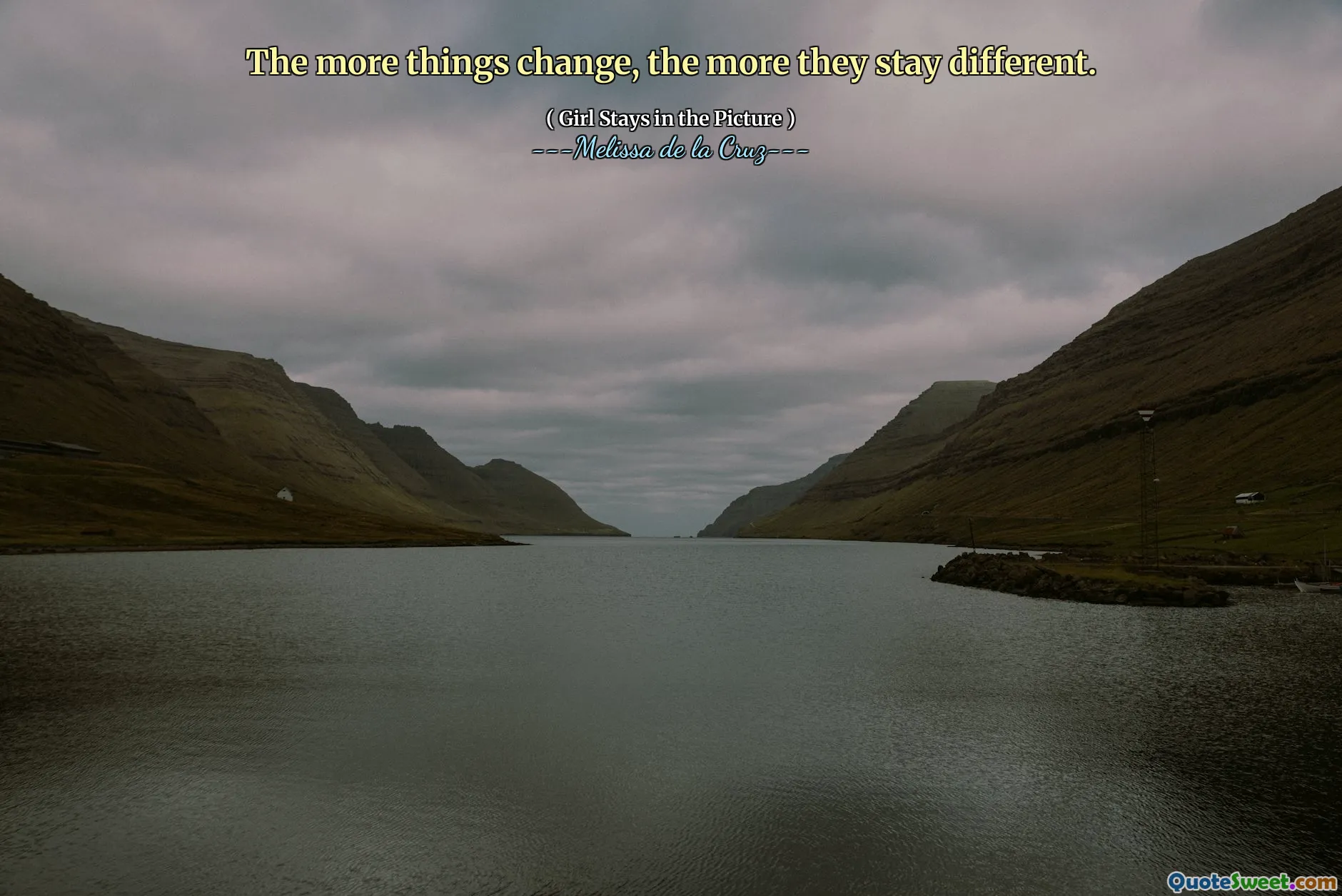
The more things change, the more they stay different.
This quote captures a paradoxical observation about human nature and societal evolution. It suggests that despite outward appearances of change—be it in technology, culture, or individual circumstances—the underlying essence or patterns often remain distinctively different from before, making each change both familiar and unique at the same time. This idea resonates deeply when considering how history tends to repeat itself in new guises, creating cycles of progress and regression. For instance, social upheavals or technological innovations may appear groundbreaking, but many fundamental human experiences, such as seeking connection or facing fears, persist through ages, albeit expressed differently.
Reflecting on this concept encourages us to understand that change is not always linear or entirely transformative; sometimes, it's a complex layering of the old and new. In personal growth, for instance, a person may adopt new habits or perspectives, yet core traits or patterns linger, shaping future behaviors in subtle ways. Society, too, adapts its norms, but the underlying values or conflicts often continue to surface, just in polygons new contexts. Such insights help us develop patience and empathy, recognizing that external change doesn't always equate to complete transformation within.
This realization is vital for navigating life's uncertainties—accepting that change involves adaptation and that the essence of situations and people morphs into something new, yet still echoes the familiar core. As we face continuous evolution, the understanding that things stay different encourages resilience and open-mindedness, assisting us to appreciate the fluidity of life while acknowledging its repetitive patterns.
In literature and art, this theme frequently appears, reflecting the constant tension between tradition and innovation. It reminds us that progress often involves nuanced iterations rather than outright revolutions, emphasizing that while change reshapes our surroundings, the human experience remains adaptively complex—striving, enduring, and ultimately transforming in subtle ways.






